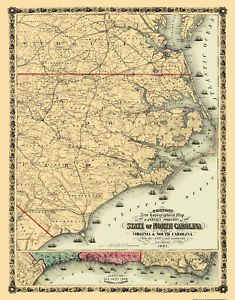 Readers of weekly Baptist newspapers of the South (and there are more such periodicals based in the South than in the North) are fed a constant war-time diet of war-related editorials and commentary; first-hand accounts from Baptist soldiers, chaplains and missionaries; and political, economic and battlefield reports (reprinted or summarized) from secular newspapers. Far from being uncritical of the Confederacy, the Baptist press of the South mixes unquestioned allegiance to the Confederate States with mounting criticism of shortcomings within the new nation. Such complaints often include lack of religious devotion as evidenced in church attendance, harsh reprimands and frequent bewilderment of the evilness of army camp life, lamentations over the extortionist prices of southern merchants, and (later in the war) dismay and even outrage (in some sections of the South) over a shortage of Baptist army chaplains and missionaries.
Readers of weekly Baptist newspapers of the South (and there are more such periodicals based in the South than in the North) are fed a constant war-time diet of war-related editorials and commentary; first-hand accounts from Baptist soldiers, chaplains and missionaries; and political, economic and battlefield reports (reprinted or summarized) from secular newspapers. Far from being uncritical of the Confederacy, the Baptist press of the South mixes unquestioned allegiance to the Confederate States with mounting criticism of shortcomings within the new nation. Such complaints often include lack of religious devotion as evidenced in church attendance, harsh reprimands and frequent bewilderment of the evilness of army camp life, lamentations over the extortionist prices of southern merchants, and (later in the war) dismay and even outrage (in some sections of the South) over a shortage of Baptist army chaplains and missionaries.
Today, the Tennessee Baptist summarizes a quite unflattering story of a Confederate soldier, as gleaned from a secular newspaper:
The Tarboro’ Mercury of Wednesday, says, last Friday afternoon, an officer in C. S. A., was shot by a young lady on the front of a hotel in Goldsboro’. The beautiful but desperate girl (and she is said to be really beautiful) approached within four feet of the officer, and firing a Colt’s repeater, the ball passed through his left shoulder. She was accompanied by her little sister at the time. Rumor tells us that the unfortunate affair is the result of disreputable conduct on the part of both the officer and the girl. The wounded soldier will recover, while the law will endeavor to teach the girl to be more quiet in her promenades.
North Carolina’s Tarboro’ Mercury, founded in 1859, is actually non-existent by the time that the Tennessee Baptist refers to this story. The South of the 1850s through 1860s witnessed the founding, and frequent demise, of many local papers. The Mercury is one such example, having folded at the end of 1861, two years after its founding.
Source: Tennessee Baptist, January 11, 1862 (link); “About Tarboro’ Mercury” (link)


